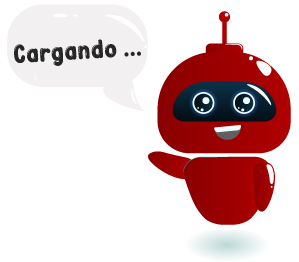Study shows that proactive patient engagement improves care outcome. These chatbots are also faster to build and easier to be integrated with other healthcare applications. While chatbots can never fully replace human doctors, they can serve as primary healthcare consultants and assist individuals with their everyday health concerns. This will allow doctors and healthcare professionals to focus on more complex tasks while chatbots handle lower-level tasks.
- Hospital managers can formulate strategies to improve individuals’ health consciousness and perceptions of convenience to develop the desired attitudes among individuals, using medical chatbots.
- One of the latest tools to enter the healthcare communication space is chatbots.
- This often is a frequent question for those who have never visited your clinic before.
- ” or “Here is some information on Type 1 diabetes you may find useful” are typical conversation starters.
- Chatbots have been introduced in many areas such as business, retailing and services like healthcare [5], [6], [7], [8] in recent years.
- Chatbots are conversation platforms driven by artificial intelligence (AI), that respond to queries based on algorithms.
Mind that it should become available only when your healthcare chatbot struggles to deliver relevant information to the clients. Otherwise, many users may choose this option from the start, which will make your healthcare chatbot irrelevant. Actually, there is no right answer to the question on which chatbot technology type to choose for your healthcare app. Many medical companies implement rule-based tools as more reliable and cost-efficient solutions. This helps them avoid unnecessary expenses on AI chatbot development services, which can bring some unpredictable results. However, everything depends on business needs and specific customer demands.
Model train_dev_test dataset are filter out the medical related questions from Quora question pair dataset.
Start by giving the bot a large dataset of relevant healthcare data. This might be medical literature, patient records, and symptom databases. As healthcare technology advances, the accuracy and relevancy of care bots as virtual assistants will also increase. A common question arises – will artificial intelligence replace doctors? You cannot automate everything, but if you opt for conversational AI agents as virtual health assistants, you can deliver better healthcare even to the remotest corners of the world. Despite virtual assistants’ promising future in healthcare, adopting this technology will still come down to what your patients experience and prefer.
They can also be programmed to answer questions about a particular condition, such as a health problem or a medical procedure. When envisioning the future, automation, and conversational AI-powered chatbots definitely pave the way for seamless healthcare assistance. Another advantage is that the chatbot has already collected all required data and symptoms before the patient’s visit. Equipping doctors to go through their appointments quicker and more efficiently. Not only does this help health practitioners, but it also alerts patients in case of serious medical conditions. Soon enough, organizations like WHO and CDC started adopting conversational AI-powered chatbots to provide curated information to a wide audience with ease.
Switching to Live Chat & Back
They’re the new standard in customer service and offer many benefits over the traditional human-centric approach. This scalability also makes it easier for doctors to manage patient demand without increasing costs. They don’t need to pay salaries or benefits for human employees, and they can keep prices low while still offering excellent customer service. Chatbots have become increasingly popular because they can provide a convenient way for patients to get answers to their questions while they’re at work or on the go. Customer service chatbot for healthcare can help to enhance business productivity without any extra costs and resources. An AI healthcare chatbot can also be used to collect and process co-payments to further streamline the process.
How will chatbot affect healthcare?
AI chatbots and virtual assistants can help doctors with routine tasks such as scheduling appointments, ordering tests, and checking patients' medical history. AI can also help analyze patient data to detect patterns and provide personalized treatment plans.
Due to the overwhelming amount of paperwork in most doctors’ offices, many patients have to wait for weeks before filling their prescriptions, squandering valuable time. Instead, the chatbot can check with each pharmacy to see if the prescription has been filled and then send a notification when it is ready for pickup or delivery. When patients come across a long wait period, they often cancel or even change their healthcare provider permanently.
Chatbot for Healthcare: Key Use Cases & Benefits
This helps users to save time and hassle of visiting the clinic/doctor as by feeding in little information, one can easily get a nearly-accurate diagnosis with the help of these chatbots. However, HIPAA regulations do not allow a chatbot to give results back in this format. You can program a chatbot to list the average times it takes for lab results to be returned.
How can chatbots be used in healthcare?
Chatbots for healthcare allow patients to communicate with specialists using traditional methods, including phone calls, video calls, messages, and emails. By doing this, engagement is increased, and medical personnel have more time and opportunity to concentrate on patients who need it more.
One critical insight the healthcare industry has learned through the COVID-19 pandemic is that medical resources are finite. We also know that when patients need help, they don’t want to wait on hold. By leveraging Watson Assistant AI healthcare chatbots, you intelligently focus the attention of skilled medical professionals while empowering patients to quickly help themselves with simple inquiries. Happier patients, improved patient outcomes, and less stressful healthcare experiences, fueled by the global leader in conversational AI.
SmartBot360 Users See…
With Next.js, ScienceSoft creates SEO-friendly apps and achieves the fastest performance for apps with decoupled architecture. ScienceSoft uses Meteor for rapid full-stack development of web, mobile and desktop apps. Any firm, particularly those in the healthcare sector, can first demand the ability to scale the assistance. The frequently asked questions area is one of the most prevalent elements of any website.
WHO enthusiastic about AI in health care, but worries about bias and misinformation – The Hill
WHO enthusiastic about AI in health care, but worries about bias and misinformation.
Posted: Tue, 16 May 2023 07:00:00 GMT [source]
Chatbot in the healthcare industry has been a great way to overcome the challenge. With a messaging interface, website/app visitors can easily access a chatbot. Microsoft Corp. and Epic announced a collaboration earlier this month to incorporate artificial intelligence into electronic health record software. Epic is the platform used by many hospitals and doctor offices to house patient records and communicate with patients.
Benefits of Chatbots in Healthcare: 9 Use Cases of Healthcare Chatbots (
Practitioners can instead ask for their medical documents and photos over WhatsApp. WhatsApp is the world’s most popular messaging app, with over 2 billion users worldwide. In some regions of the world, it is the messaging app for personal communications. We leverage Azure Cosmos DB to implement a multi-model, globally distributed, elastic NoSQL database on the cloud.
Design A One-Of-A-Kind Chatbot – Science Friday
Design A One-Of-A-Kind Chatbot.
Posted: Wed, 24 May 2023 07:00:00 GMT [source]
Most emergency situations require professional intervention, but there are times when patients can benefit from a quick self-assessment. If the condition is not too severe, a chatbot can help by asking a few simple questions and comparing the answers with the patient’s medical history. A chatbot like that can be part of emergency helper software with broader functionality. In this metadialog.com blog post, we’ll explore some of the key questions that will shape the future of chatbots in healthcare. If you’re looking to get started in the world of artificial intelligence, one great way is to create a chatbot. Chatbots are computer programs that can mimic human conversation, and they’re becoming increasingly popular as a way for businesses to interact with customers.
What are the cons of chatbots in healthcare?
- No Real Human Interaction.
- Limited Information.
- Security Concerns.
- Inaccurate Data.
- Reliance on Big Data and AI.
- Chatbot Overload.
- Lack of Trust.
- Misleading Medical Advice.


